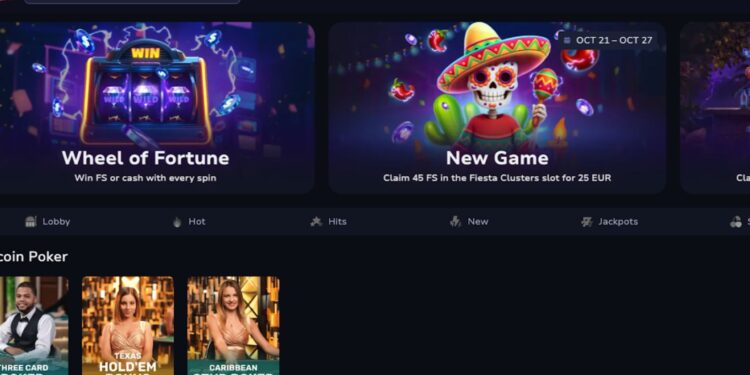Online poker fixed a lot of problems. No smoke, no travel, no sketchy casino backrooms. But it also broke something along the way: the face-to-face tension that made poker thrilling in the first place.
You can’t bluff a nickname. You can’t read a static avatar. You just bet, fold, repeat. Efficient? Sure. Memorable? Not so much.
And then came NFTs.
Now you’re not just sitting across from “AKgrinder97″—you’re facing a blockchain-verified cyber-fox in a tuxedo, wearing a crown he won in a sat-only NFT tournament last month.
His avatar glows. His chips are wrapped in animated obsidian. When he wins a hand, the table lights up. And if you beat him? You don’t just take his stack—you dent his identity.
This is poker, re-skinned for the Web3 era. And Bitcoin is the currency moving it all.
From Anonymous Tables to Playable Personas
When poker moved online, the human layer got stripped away. No tells. No posture. No drama. Just HUDs, grinders, and data. But NFT integration is reintroducing something the online game desperately needed: presence.
In this new format, your avatar isn’t decoration. It’s a collectible character—often tradable, sometimes upgradable—that represents your persona at the table. You don’t just play with it. You build it.
Bitcoin also plays a foundational role here—not just as a payment method, but as part of the game economy. On a bitcoin poker site like 7BitCasino, your winnings, buy-ins, and even rewards for NFT achievements are often settled directly in BTC.
On some platforms, avatars level up through gameplay. Win enough Bitcoin tournaments? Your punk samurai might earn a rare animation or unlock a glowing skin. Get crushed for a week straight?
That losing streak becomes part of your visible history. It’s not just poker—it’s performance.
What this changes:
- Bluffing becomes psychological again; avatars can project confidence or tilt
- Long-term players start to build reputations beyond chip counts
- Avatars and table assets become bragging rights, tradable or trophy-worthy
- Identity is no longer throwaway—it’s part of the meta-game
Tokenized Access: Poker Passes, But Make Them Rare
Forget plain old buy-ins. On NFT poker platforms, entry into premium events can be locked behind tokenized assets—meaning only holders of specific NFTs can play.
These access NFTs function like golden tickets. You might win one in a free event, or buy one on a secondary market. Want into the weekend’s high-stakes invitational? Better grab the right NFT key, or you’re watching from the rail.
What’s different here is the economics:
- Entry passes can appreciate in value as events gain prestige
- Players can resell tournament access they don’t use
- Scarcity creates real buzz around major events
- Communities form around specific NFT sets and event types
In this system, owning the right NFT isn’t just access—it’s leverage.
7Bit Casino: Pioneer of Bitcoin Poker Innovation
7Bit has become one of the first major gaming platforms to integrate Bitcoin payments and NFT-based poker features. Players can join tables using BTC for buy-ins and withdrawals, while their NFT avatars evolve with each victory.
This approach combines blockchain transparency with fast transactions and privacy — essential elements for the modern poker experience.
Bitcoin Isn’t a Feature, It’s the Foundation
Most NFT poker platforms don’t run on fiat. And while some use tokens like ETH or SOL, many are embracing Bitcoin—not just for its liquidity, but for what it represents.
In the world of online poker, Bitcoin makes sense:
- Fast peer-to-peer payments without banking delays
- Global accessibility without currency conversions
- Lower fees, especially compared to traditional poker sites
- Pseudonymous play that respects privacy
But more than that, Bitcoin culture fits poker culture. High-risk, independent-minded, anti-establishment. The kind of people who keep their own keys also tend to know when to shove with nothing but a flush draw.
Some platforms take this further:
- Micro-sats tournaments with tiny stakes and huge volume
- Instant, trustless prize pool payouts on-chain
- Player-owned treasuries funded in BTC

Playing poker in Bitcoin isn’t just practical—it’s ideological. It’s signaling.
Why Bitcoin Poker at 7Bit Casino Feels Different
Unlike traditional poker sites that rely on slow banking systems, 7Bit uses Bitcoin for instant deposits and trustless payouts. Players keep full control of their funds while enjoying provably fair games powered by blockchain technology.
The mix of speed, transparency, and NFT-driven identity makes poker on 7Bit Casino not just a game — but a digital performance built on ownership and reputation.
Owning the Game: Chips, Cards, Trophies That Matter
In NFT poker, chips aren’t just chips. Some are collectible. Some are limited-edition drops tied to events, seasons, or celebrity partnerships. Some even grant perks: priority seating, access to beta features, or voting rights in platform governance.
Common in-game NFT assets:
- Branded chipsets with unique animations or sounds
- Card backs styled after specific tournaments
- Victory trophies minted after final tables
- Exclusive seating NFTs for private lounges or high-roller tables
These items create a meta-layer of competition. You’re not just playing to win—you’re playing to collect, to flex, to curate a presence.
Friction and Fiction: Where It Gets Risky
Of course, all of this comes with caveats. There’s no shortage of platforms trying to ride the NFT wave without offering real value. Some pump out low-effort avatars and flood the market. Others complicate onboarding with clunky wallets and bad UX.
Biggest challenges right now:
- Oversupply of poorly made NFTs with no long-term appeal
- Lack of standardization across platforms
- Technical barriers for mainstream poker players
- Regulatory gray zones around gambling and tokenized assets
But despite the noise, serious builders are emerging—teams focused on gameplay, sustainability, and community rather than just art drops.
The Road Ahead: Poker DAOs and Metaverse Tables
If this space matures, expect more than just NFT avatars and chip skins. We’re talking full-on poker collectives—player-owned DAOs that host tournaments, manage prize pools, and vote on rule changes.
Tables inside virtual clubs. Cross-platform tournaments with dynamic NFTs as trophies. Spectator betting layered on-chain.
In five years, it’s not hard to imagine:
- Your avatar walking into a virtual poker lounge run by a DAO
- Sitting at a table funded by a community treasury
- Playing for a trophy that gets minted on win and auctioned off by the runner-up
This is where poker, Bitcoin, and NFTs merge into something more than a game. It’s an ecosystem. A culture. Maybe even an economy.
Conclusion
NFT poker isn’t just poker with extra steps. It’s poker rebuilt for a digital-native generation that doesn’t just want to play—but to own, to flex, and to be seen.
And Bitcoin? It’s not just the bankroll. It’s the heartbeat.
This new wave won’t replace traditional poker any more than online rooms did. But it will evolve it. Layer by layer. Bit by bit. Block by block.




























































